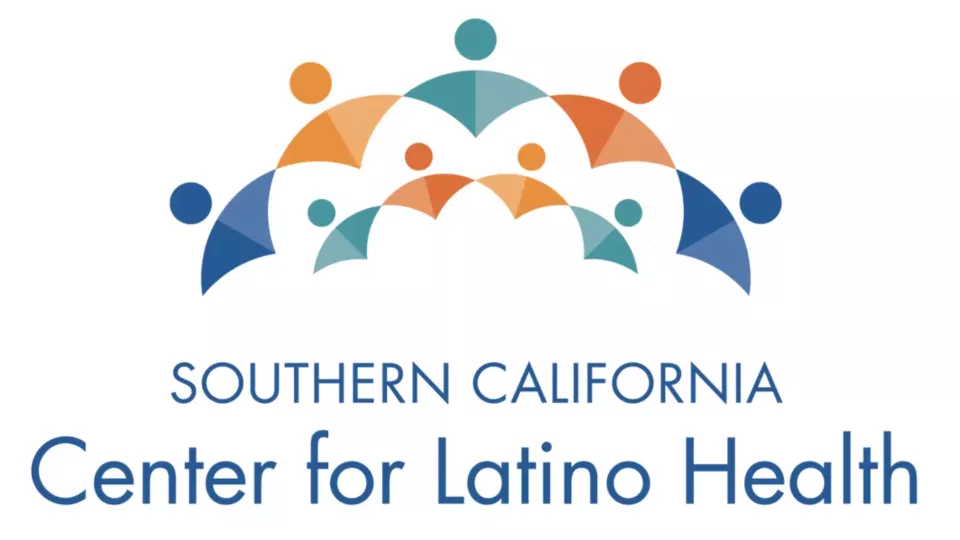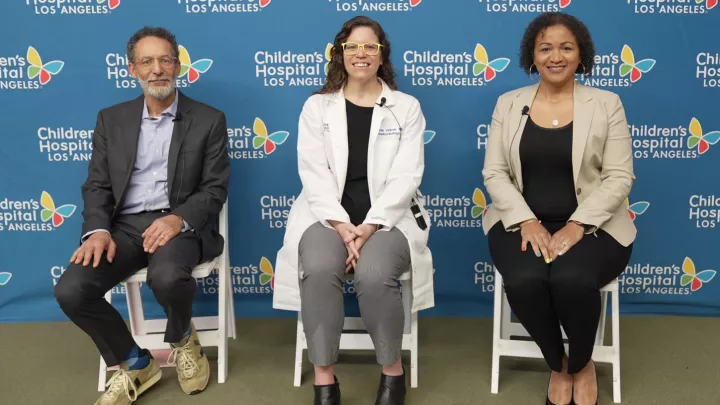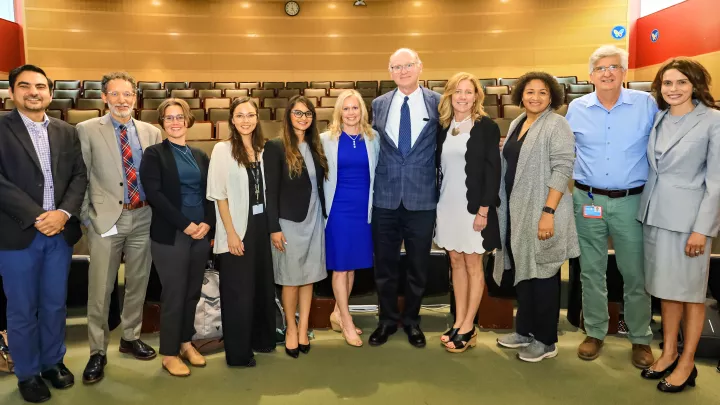
Southern California Center for Latino Health
Southern California consists of 10 contiguous counties and is home to 10.8 million Latinos (representing 45.2% of the population) who are disproportionally affected by multiple and co-occurring chronic diseases—namely obesity, Type 2 diabetes, nonalcoholic fatty liver disease and dyslipidemia. This disparity begins to develop early in life, occurs within families, is magnified by intergenerational transmission and is driven by multi-level factors—including diet, cultural values, social determinants, economic factors and environmental-level factors like access to healthy foods and chemical exposures such as air pollution.
The new Southern California Center for Latino Health is funded by a five-year, $24.5 million National Institutes of Health (NIH) grant. Based at CHLA, it is led by Michael Goran, PhD, Professor of Pediatrics and Director of the Nutrition and Obesity Program at The Saban Research Institute, and Associate Center Director Lourdes Baezconde-Garbanati, PhD, Professor of Population and Public Health Sciences at the Keck School of Medicine of USC.
The Center is one of 11 centers funded by the National Institute on Minority Health and Health Disparities to address health disparities in multiple chronic diseases. The overall goal is to understand how the complex interplay between these multilevel factors contributes to multiple chronic disease disparities in Latinos across the life course, and to develop and evaluate the acceptance, delivery and clinical efficacy of family-based, culturally sensitive solutions.
A regional consortium, this effort includes investigators from CHLA, USC, University of California San Diego, Kaiser Permanente, San Diego State University and the Sansum Diabetes Research Institute in Santa Barbara. It consists of four cores:
- Administrative Core, which provides leadership, oversight, communication and evaluation to ensure Center success and support research activities within three projects
- Methods & Data Sub-Core, which provides expertise in assessing diet, social, environmental and geospatial factors, as well as data analysis and management to support data harmonization and sharing
- Investigator Development Core, which is establishing a mentoring network and pilot study program to support early-stage or underrepresented researchers, while also promoting team science
- Community Engagement Core, which engages the community in the research process via bi-directional interaction. The overall goal is to accelerate the impact of Center findings on the Latino community to mitigate chronic disease risk across the region.
The Center has three integrated research projects. Project 1 (led by Dr. Goran at CHLA and Tanya Alderete, PhD, at University of Colorado Boulder) utilizes an ongoing birth cohort to examine how early-life nutrition, environment and social factors affect chronic disease risk by 6 years of age and how these factors affect response to family-based interventions in Projects 2 and 3. Project 2 (led by Kerri Boutelle, PhD, at UC San Diego) tests a parent-only intervention for treatment of obesity and chronic disease risk in Latino children. Project 3 (led by Deborah Cohen, MD, at Kaiser Permanente) examines the efficacy of an affordable grocery delivery program—in conjunction with culturally appropriate meal planning—on chronic disease risk reduction in Latino multi-generation households.
To learn more, please read this research news story and the publication below:
Cleveland III JC, Espinoza J, Holzhausen EA, Goran MI, and Alderete TL. (2023) The impact of social determinants of health on obesity and diabetes disparities among Latino communities in Southern California. BMC Public Health. Jan 6;23(1):37. (PMID: 36609302)


